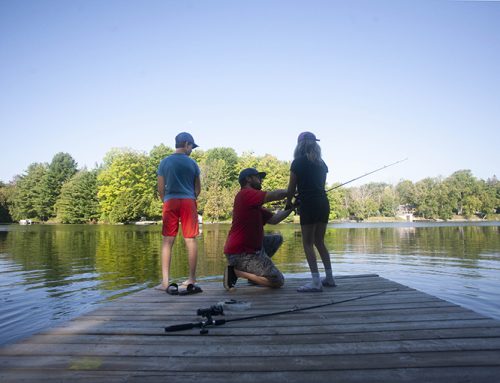
Climate change might be good for some fish species, but apparently not for perch.
Ohio State University researcher Stuart Ludsin found traditional longer, colder winters meant yellow perch produced larger and hardier eggs than those produced in warmer, shorter winters.
More specifically, he found cold winters resulted in eggs 30 to 40 per cent larger that had a two-fold to four-fold better hatching success rate.
Using eggs collected from Lake Erie perch, Ludsin replicated conditions found in what was considered an average winter, with bottom water temperatures below 5˚C (42˚F), for 107 days.
Then he replicated a warm winter, with bottom temperatures at five degrees for only 52 days. The fish exposed to the short winter conditions produced as many eggs, but the quality was inferior.
Ludsin hypothesized the warm winters might be one of the reasons why yellow perch populations in Lake Erie have been below average.
Warmer temperatures can also negatively impact the availability of zooplankton, a vital food for young perch. When that’s the case, the young grow more slowly and are more vulnerable to predation by invasive white perch, a major predator.
The study is published in the journal Nature Communications.






This can’t be the reason Erie perch are down because the last couple of winters have been terrible